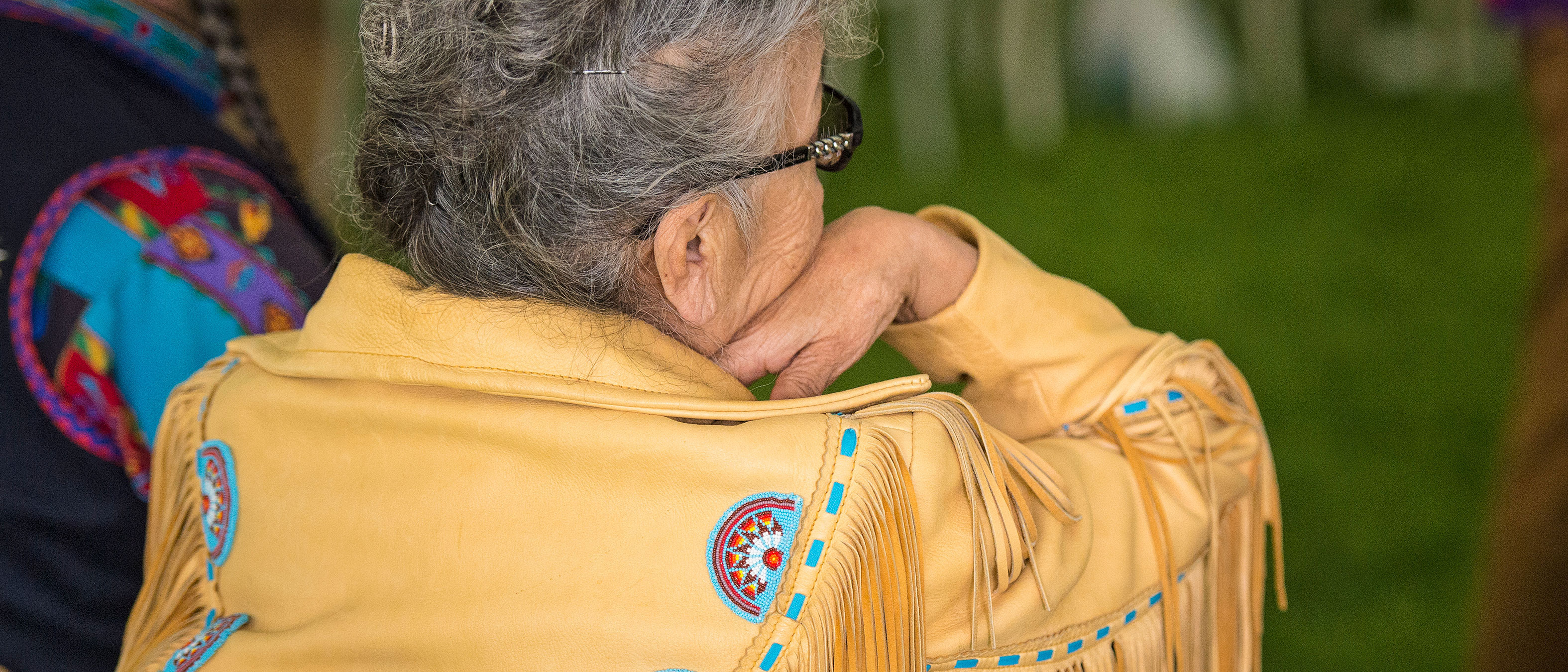
Woman wearing a beaded and fringed jacket
Truth and Reconciliation Commission of Canada
The context of this journey is critical and it is only recently that a more collective understanding of the history that continues to shape the historical and lived experiences of Indigenous peoples has emerged. The work of the Truth and Reconciliation Commission of Canada (TRC) marked a pivotal shift in public awareness about Indigenous Peoples and histories. With its final report released in 2015, the TRC revealed to Canadians the complex truth about residential schools, documenting the individual and collective harms perpetrated against Indigenous Peoples. The TRC focused on truth telling as a path towards healing for Indigenous pPoples and between Indigenous Peoples and non-Indigenous communities, churches, governments and Canadians generally.
While only a part of our history, the TRC's difficult work amplifying the voices of residential school survivors offered an opening to a critical discussion about other aspects of the Indigenous colonial experience including legal dispossession, cultural and linguistic destruction and restrictions against the right to gather, vote, practice ceremony and attend post-secondary institutions, among many others. It is important to recognize that the pervasive restrictions against Indigenous Peoples, often regarded as historical in nature, persisted and persist and the harmful legacy of those measures are still felt to the present day as systemic racism and barriers.
The TRC issued 94 far-ranging Calls to Action urging governments and other entities, including post-secondary institutions, to work together to repair the harm caused by residential schools and to move forward with reconciliation more broadly. Of particular relevance to post-secondary institutions is the legacy of the assimilative practices of the residential school system on the educational attainment of Indigenous Peoples as well as the challenge to address those.
The TRC noted that universities are uniquely and powerfully positioned to enact reconciliation as the Calls to Action touch on every aspect of the university mandate with work in teaching, learning, research and community engagement. Reconciliation starts with work across these spaces, asking key questions and looking at the history, policies and practices that shape our current reality in order to tackle systemic racism and dismantle the structures that continue to disadvantage in order to make things right.